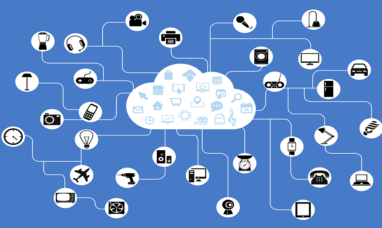Should You Take Out a Personal Loan In a Crisis?
Most Americans have already received the government-issued stimulus checks that have helped them get back on their feet after the COVID-19 crisis. While some appreciated the money, it may not have been sufficient for others.
If you are struggling financially during this crisis, you might be tempted to reach for a personal loan for expenses not covered by your stimulus check or savings. These loans can provide quick funding of $1000 and up.
However, lenders are also adjusting to the COVID-19 economy and there may be stricter qualification requirements for many loans. Is it a good idea to get a personal loan right now?
On top of considering personal loan interest rates and comparing various lenders, prospective borrowers now have more questions to ask before committing to a loan. Keep reading to review some of the most crucial questions you should be asking about personal loans in a crisis.
1. Will I Qualify for an Unsecured Loan?
Lender requirements for personal loans vary, but all financial institutions will evaluate several financial factors such as your income and credit score when reviewing your application. With some lenders raising their requirements, here are some factors you should evaluate to ensure that you qualify for an unsecured loan.
Credit Score & History
In general, borrowers with a credit score of 690 or above have a better chance of securing a personal loan. While most banks have some leniency if your credit is slightly below this mark, they may be stricter with these requirements during the pandemic. It could be challenging to qualify, depending on your other financial markers, if your credit score is not up to par. However, it’s not impossible to get a personal loan with bad credit.
Check your credit score with accessible sources like FICO. If your score is a little low, look into online lenders. These tend to be more lenient with their requirements than traditional banks. Credit unions are also more lenient towards borrowers with low credit scores if you hold an existing account.
Income
Borrowers with a steady income source have a better chance of getting a personal loan as it ensures the lenders that they have the means to repay the loan.
Due to the pandemic, some lenders raised the income requirements on unsecured loans. Combined with the decreased job security experienced by many, this can make it difficult to qualify for an unsecured personal loan.
If your income makes it hard to acquire a loan, consider getting a cosigner on your loan. The cosigner will agree to pay for your loan is you cannot make your payments and their income will be added to your application. This could help you get approved and lead to a lower interest rate.
Debt-to-Income Ratio
Lenders often look at your debt-to-income ratio to find out how much debt you are already in. You can find your DTI by adding up your monthly debt payments such as a mortgage, student loan, car loan, or other debt and dividing it by your monthly income. The lower your DTI, the better your chances of qualifying for a loan and getting a low interest rate. Borrowers with more than 43% of their monthly pay dedicated to debt payments might not qualify for a new loan.
If your debt-to-income ratio is too high to qualify for a loan, consider taking time to pay off more of your existing debt before applying for a loan.
2. Is a Personal Loan a Good Idea?
In general, a personal loan is a good option if you are using it to improve your finances. For instance, a personal loan can help you consolidate other debts and pay them off faster. If you can pay off a bundle of high-interest loans by taking on one loan with a lower interest rate, you can save lots on interest over time. As long as you can pay it back without monopolizing your budget, using a personal loan in this way can be a great financial decision.
An attractive feature of personal loans is that they can be used for anything that you need. However, personal loans used to pay for discretionary expenses like vacations can be costly and unneeded. Also, using a personal loan to pay rent, utilities, or medical bills is an expensive option, even in a crisis. It should only be considered after exhausting all other options such as crowd-funding and loans from friends and family.
If you decide to take out a personal loan, you should take the time to find a loan with a rate and monthly payment that you will be comfortable with over the term. If you default on a personal loan, you can face significant financial consequences.
3. How Do I Get the Right Personal Loan?
Each lender has its own set of qualifications for borrowers. Your credit score, income, and spending habits are all essential factors in determining the right lender for you. Here are some factors you should consider when comparing lenders:
-
-
- Features: You should compare the different features offered by lenders to decide where to take out a loan. Decide which features are most important to you and find lenders that meet your needs. For instance, some lenders have programs that will allow you to defer loans if you need more time to make a payment.
- Cost: The most important factor for most borrowers is how much the loan will cost you. The biggest cost for most loans is the interest that you must pay on them. You should get pre-qualified with various lenders to compare the interest rates and other fees that may apply to your loan.
- Time: Consider how soon you need the loan. If you are looking for a quick turn-around you should consider lenders that specialize in quick funding.
- Term: You should also determine the amount of time over which you will have to repay the money. Personal loans are usually repaid over two to five years. The longer the repayment term, the more you will pay in interest.
-
4. Can I Have More Than One Loan?
It is possible to take out multiple personal loans at the same time. However, lenders may not allow you to take out more than one personal loan if your debt-to-income ratio is too high or your credit score is too low.
When you apply for a second loan, the lender will pull a hard inquiry on your credit report which will lower your credit score. You may want to look at other options if one loan is not enough.
5. What Are Some Alternatives to Borrowing?
While reducing expenses and saving money are the best ways to make a financial breakthrough, there are other options to help you meet your immediate financial needs.
-
-
- 0% APR Credit Card: Consider a credit card with 0% APR if your credit score is excellent. If you have good credit, this can be a great way to get money in the short term as long as your monthly payments are met.
- Local resources: Non-profits, charities, or religious organizations may be willing to provide you some financial relief.
- Payment Plans: Set up payment plans or speak with medical bill advocates if you are struggling to pay your medical bills.
- Lending circles: A lending circle is defined as a group of people lending money to each other at no cost or raising money for one another.
-
Frequently Asked Questions (FAQs)
Is Interest on Personal Loans Tax Exempted?
Interest on personal loans is not tax-deductible. In contrast, loans on mortgages, student loans, and business loans can often be deducted from your annual taxes, effectively reducing your taxable income for the year.
Is Personal Loan Protection the Same as PPI?
Payout protection insurance (PPI) is also known as personal loan protection, credit insurance, loan repayment insurance, or credit insurance. It covers credit repayment if the borrower dies or is unable to work. Banks and credit providers offer PPI as an additional product to overdraft or loan products.
Should I Take Out a Payday Loan?
Payday loans should be avoided, even in times of crisis, unless absolutely necessary. Payday loans can have an annual percentage rate of more than 300%, and repayment terms are typically only two weeks. This can lead to borrowers owing much more in a short amount of time and becoming trapped in a cycle of debt.
Featured Image: Twenty20








